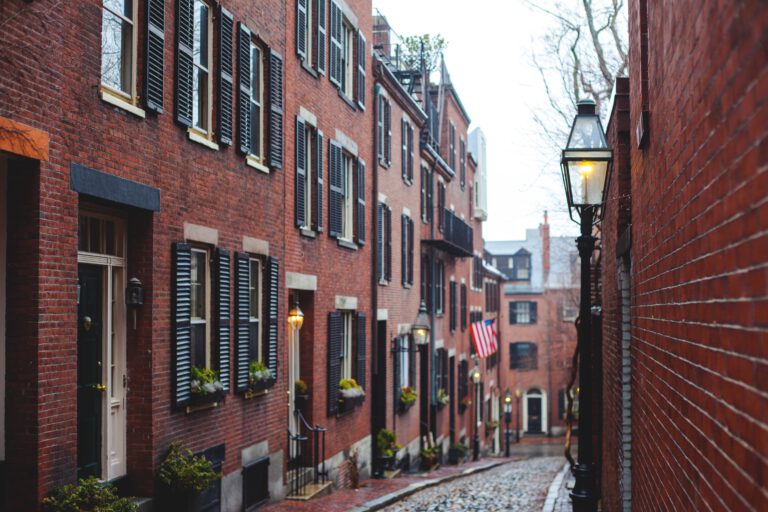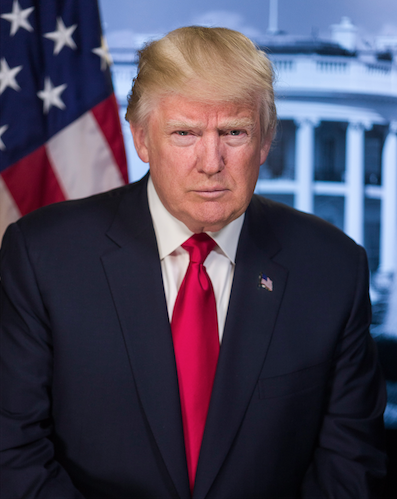The opening salvos were “tweets”, the author in chief a vulgar, unlearned, reality-television star, his target: son of a Maoist propaganda chief, all-grown-up into a self-styled Chinese Emperor, the Son of Heaven. While it sounds like the beginning of a Marvel Comics’ storyline, just before the mutants rush in to save the day, it was the all-too-real beginning of a trade war between the United States and China.
President Trump and China’s paramount leader Xi Jinping seem more ready for battle than peace as the trade war escalates. In time, if both sides aren’t careful, it might progress to a shooting war. As Mark Twain may have said, “History doesn’t repeat, but it often rhymes,” and Donald Trump’s bum-rush challenge to the neoliberal, or “globalist”, world order gives fresh breath to this old saw. Americans would be wise to view Trump’s trade war in an historical context, both to understand its high stakes and how we got here and to envision a way out.
Despite what your betters in the media would have you believe, neoliberalism—the global economic order—is neither particularly new nor particularly liberal. Like today, the early twentieth century saw robust trade between western nations and Japan. While this trade was far from laissez faire, it was closer to “free trade”in the modern sense than it was to the mercantilist trade that preceded it (defined by protectionism designed to maximize national exports and state power; just think China today or Britain in the 1700’s).
Free trade was then and is now “managed trade”, between nations as liberal (then) as the United States and as illiberal as the Austro-Hungarian Empire, and based on international trade agreements. Since World War II, these agreements have been developed under the auspices of international organizations such as the World Trade Organization (WTO).These organizations and post-WWII agreements are at the core of neoliberalism.
It shouldn’t come as a surprise that managed trade is managed to the benefit of the international elite who write the agreements. Until recently, this didn’t bother too many people living in the developed countries that wrote the rules. This managed trade was free enough to improve everyone’s standard of living within these countries. Personal computers, air conditioning, refrigeration in every home, and the ability to choose what you eat on a daily basis—rather than fish Fridays and baked beanSundays—are proof, and the list goes on. But after the fall of the Soviet Union, neoliberalism stood unopposed, and the elites writing the rules got greedy.
In the early 1990’s, the powers-that-were looked at China and saw two things: 1. a simmering cauldron of poverty and 2. cheap labor. As apologists for what came next tell it, the Clinton Administration decided that if China was not integrated into existing global trade networks, the world would suffer either regional instability or war.Washington D.C. think-tank “experts”were unanimous:trade with China, and it will adopt the rule of law.
As it happened, tens of thousands of American jobs were off shored, the United States found a willing and eager buyer of its debt—fuel for the American military machine—and Chinese state capitalism flourished, but the rule of law in China has been slow to catch up. American elites got richer, a lot richer, but the average American stayed put. Cheap Chinese goods stretched a dollar’s purchasing power and distracted the American middle class as the factories that built it were rapidly shipped abroad. Only after the 2008 Great Recession (really, a Depression, rebranded) did middle-class Americans realize they were no longer.
As one indicator of how good this trade was for those at the top of the heap, the CEO-to-average-worker-pay ratio climbed from 122to 1,in 1995,to 270 to 1,today. Of course, this isn’t only attributable to trade with China, but there’s no question that seemingly infinite cheap labor boosted bottom lines. The devil, however, was in the details; namely, that China is closer kin with the totalitarian regimes of WWII vintage than with the illiberal regimes engaged in international trade prior to WWI.
Trump was right to campaign on trade with China and unfair trade practices.This issue, not the Russians, won Trump the Presidency.The President errs in defining the problem, however, by focusing on the trade deficit. In truth, the problem is one that the American Establishment does not want to discuss; trading with China is, not to put too fine a point on it, like trading with Chilean dictator Augusto Pinochet’s (CIA-backed) fascist regime.
From concentration camps for its 12 million Muslims in Xinjiang province, to harvesting the organs of imprisoned political dissidents, to relying on millions of slave laborers to fulfill its appetite for growth, to a high-tech social-credit surveillance system like something out of an episode of Black Mirror, China is in many ways a modern dystopia that would make George Orwell blush.As its power grows, its influence and neo-colonial wake expands.
After two decades, American corporations’ supply chains are deeply integrated in China, and now that China is the factory of the world, it would be impossible to avoid buying Chinese-made goods. A trade war will, in fact, make everyone poorer with higher prices and Chinese business going elsewhere—the Maine lobster industry may never recover what it’s losing to Canada—and likely strengthen rather than diminish Chinese totalitarianism. Even in the event of a shooting war, trade to and from China will continue, just as trade withGermany evaded WWII embargoes.
A shooting war with China may be the world’s last, and prayers for superhero saviors will go unanswered. Donald Trump has started a dispute from which there’s no good exit except to end it, ideally with some concessions from China on intellectual property protections and increased market transparency and openness. The only way forward is to tell the truth about China—and demand American government and business leadership come to account for the costs of Chinese trade, not only to American workers, but to the Chinese people and the world. Trade wars belong to Mark Twain’s time, not ours.











